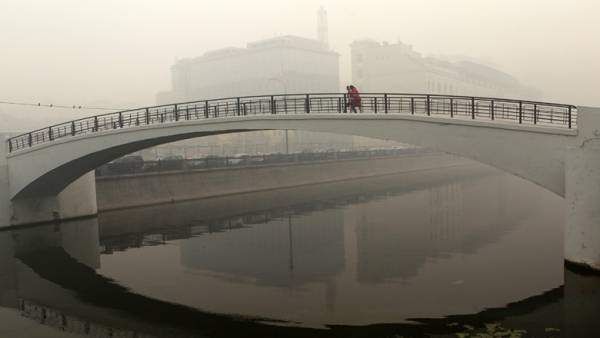The climate can wait
Russia does not hurry with the ratification of the Paris agreement.

Kommersant became known the priorities of the climate policy of the Russian Federation in the near future that the outgoing government intends to leave the new composition of the Cabinet. The Russian authorities (including the Ministry of natural resources) recommend not to hurry with the ratification of the Paris climate agreement. The main method of carbon regulation selected support projects to reduce greenhouse gas emissions — with the simultaneous development of mechanisms of compensation of harmful emissions through forestry projects.
At the disposal of “Kommersant” were the correspondence and the minutes of the meeting of the departments on the subject of the adjustments approved in 2016, the “package of measures to improve state regulation of greenhouse gas emissions and to prepare for the ratification of the Paris agreement”. According to these documents, the position of the majority of the departments is as follows: earlier than planned, ratification (according to “Kommersant”, more than once suggested the economy) are not needed. Instead, you must wait for the final elaboration of international rules of agreement (should be ready in the fall of 2018) and then make a decision on ratification.
We also recall that last year, Donald trump announced plans for the US to withdraw from the PS (process takes four years, so long as the country remains a party to the agreement).
According to Ministerial documents, the key approach of the Russian Federation to carbon regulation is supporting projects to reduce greenhouse gas emissions. Also develops rules “of mechanisms of compensation of GHG emissions”. It is first and foremost about the feasibility of forestry projects for companies with the aim of deduction of the absorbed emission due to forest plantations (disputes business and the Ministry of natural resources about the “forest method”, namely, methods of calculation of the absorbed emission is still ongoing).
Some experts fear that the delay in the ratification may adversely affect the international reputation of Russia and its further participation in the drafting of the rules of the new climate regime.
In their opinion, will increase and the potential risks to carbon-intensive Russian industries. “The agreement does not impose on Russia any additional obligations — the goals to reduce emissions, we developed and sent to the UN on their own, — said “Kommersant” the head of the program “Climate and energy” WWF Russia Alexei Kokorin.— Ratification was only then, do we have chances of international projects — from them it is better not to refuse. And politically to be with the tramp against the world is pretty stupid”.
The source of the “Business Russia” considers very important the participation of the Russian Federation in the approval of rules of PS already on the rights of the parties to the agreement. In his opinion, Russian business greatest danger lies not in the agreement, and the establishment of rigid international requirements to regulate emissions outside its framework. Recall that the first steps towards the international regulation of emissions to the level of the ICAO (international civil aviation organization, see “Kommersant” on February 13). Also at the April meeting of the International Maritime organization (IMO) approved a plan to reduce greenhouse gases in shipping by 50% by 2050 (from the level of 2008).
Earlier, EU officials said they are considering the possibility not to conclude trade agreements with countries that have not ratified the SS, at the WTO have already started consultations on the introduction of green indicators in international trade. For Russia, the risks of such regulation is high — in terms of actual we lack a fully functioning national monitoring, reporting and verification of emissions (recall that the bill, developed in the end of last year, hung — including for critical reviews of the RSPP). The source “” in RSPP, meanwhile, speaks of “many uncertainties” and “lack of consensus” in the current international climate negotiations, coming to the conclusion that “in this situation to hurry with the ratification of the Russian Federation is still not worth it.”
Angelina Davydova.